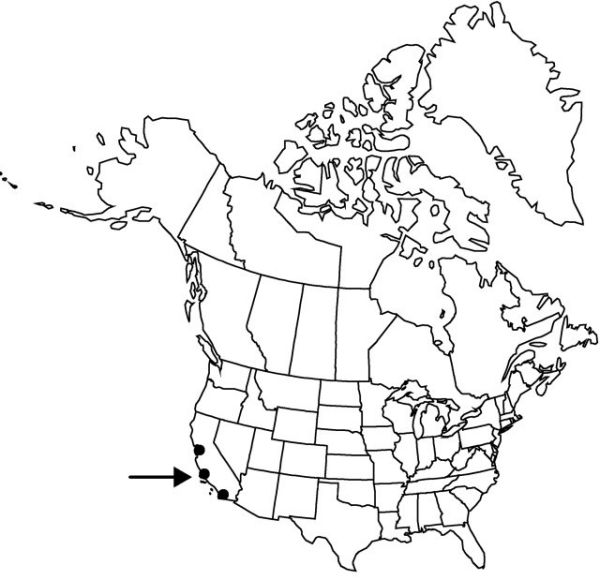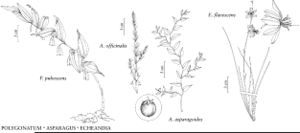Difference between revisions of "Asparagus asparagoides"
Rep. Bot. Exch. Club Soc. Brit. Isles 3: 414. 1914.
Common names: Smilax asparagus
Basionym: Medeola asparagoides Linnaeus Sp. Pl. 1: 339. 1753
FNA>Volume Importer |
FNA>Volume Importer |
||
| Line 8: | Line 8: | ||
}} | }} | ||
|common_names=Smilax asparagus | |common_names=Smilax asparagus | ||
| − | |basionyms={{Treatment/ID/ | + | |basionyms={{Treatment/ID/Basionym |
|name=Medeola asparagoides | |name=Medeola asparagoides | ||
|authority=Linnaeus | |authority=Linnaeus | ||
| + | |publication_title=Sp. Pl. | ||
| + | |publication_place=1: 339. 1753 | ||
}} | }} | ||
|synonyms= | |synonyms= | ||
| Line 52: | Line 54: | ||
|publication year=1914 | |publication year=1914 | ||
|special status= | |special status= | ||
| − | |source xml=https://jpend@bitbucket.org/aafc-mbb/fna-data-curation.git/src/ | + | |source xml=https://jpend@bitbucket.org/aafc-mbb/fna-data-curation.git/src/f6b125a955440c0872999024f038d74684f65921/coarse_grained_fna_xml/V26/V26_369.xml |
|genus=Asparagus | |genus=Asparagus | ||
|species=Asparagus asparagoides | |species=Asparagus asparagoides | ||
Revision as of 19:31, 24 September 2019
Vines, erect to deflexed, branching, climbing to 1.5 m; roots tuberous. Stems slender, to 3 m, wiry, smooth to slightly ridged; cladophylls solitary at each node, broadly lanceolate to ovate, 15–35 × 5–15(–20) mm, leathery, with 20–24 parallel veins. Leaves membranous, 1–2 mm; blade broadly lanceolate. Inflorescences in axillary umbels, 1–3(–4)-flowered. Flowers bisexual; perianth campanulate; tepals white, with green median stripe abaxially, 5–7 × 1–1.5 mm; pedicel 5–8 mm, with hard, raised joint 1–3 mm above base. Berries red, 6–8 mm. Seeds 1–4(–6). 2n = 20.
Phenology: Flowering spring–summer.
Habitat: Waste places, open forests, roadsides
Elevation: 0–100 m
Distribution

Calif., s Africa.
Discussion
Asparagus asparagoides is cultivated as an ornamental and has naturalized locally in southern Europe.
Selected References
None.
Lower Taxa
None.
